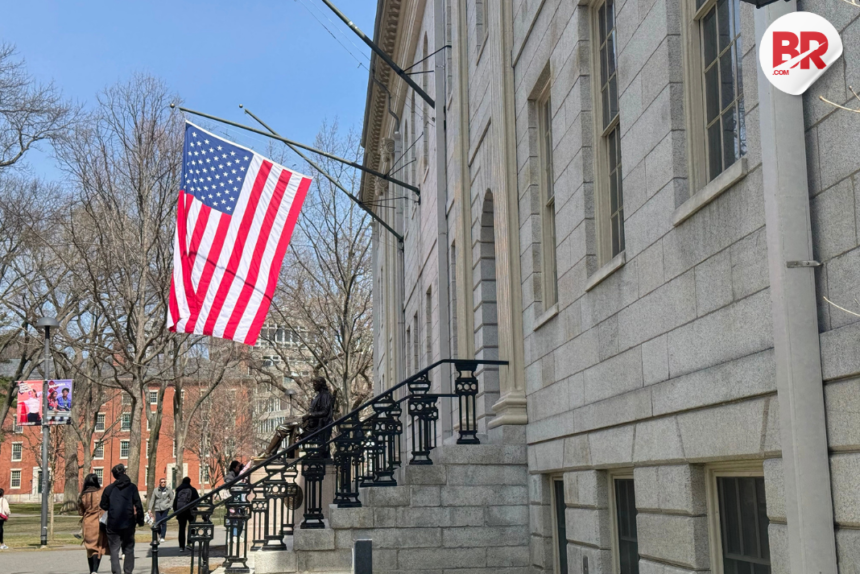
In a major move that’s shaking up higher education, the Trump administration has frozen $2.2 billion in grants to Harvard University, claiming the Ivy League school failed to comply with new federal mandates aimed at combating anti-Semitism on campus.
The freeze came after Harvard’s interim president, Alan Garber, refused to meet a series of demands issued by the White House on April 3. These included sweeping reforms in governance, admissions, hiring, and cooperation with federal immigration authorities.

But Harvard stood firm. Garber said, “Harvard will not negotiate over its independence or its constitutional rights.” The university made it clear that no government—regardless of political affiliation—should interfere with academic freedom, teaching, or research.
Why Were the Grants Frozen?
According to administration officials, elite institutions like Harvard University are not entitled to taxpayer money without showing accountability.
The Trump administration’s directive demanded the closure of diversity, equity, and inclusion (DEI) offices, transparency in hiring and admissions, and a shift toward merit-based decisions.
Officials also cited Harvard’s “failure to uphold federal civil rights laws,” suggesting that ongoing campus protests and alleged anti-Semitic incidents were not being addressed adequately.
Harvard was given a deadline of August 2025 to comply or risk permanent loss of federal funding, including $60 million in active contracts.
Also Read: White House Takes Action Against Columbia University Over Deportation Issue!
Harvard’s Refusal to Comply
Harvard has taken a bold stance. Garber emphasized that accepting the mandates would “compromise our core values.”
He warned that allowing the federal government to dictate how universities operate would set a dangerous precedent. “This is about more than grants—this is about the future of academic independence in America,” Garber said.
Also Read: How U.S. Universities Handle Campus Protests
National Reaction and Fallout
Not everyone agrees with Harvard’s position. Republican leaders quickly rallied behind the funding freeze.
President Trump linked pro-Palestinian campus groups to extremist ideologies, while Representative Elise Stefanik praised the decision to withhold funds, calling it a wake-up call for Harvard’s leadership.
Meanwhile, Harvard Law Professor Nikolas Bowie called the administration’s demands “authoritarian” and said they infringe on First Amendment rights.
This isn’t an isolated incident. Columbia University, facing similar federal pressure, agreed to most of the demands but had to forfeit $400 million in grants.
Campus Climate and Wider Implications
Tensions on university campuses have been high in recent months, with student protests over the Israel-Gaza conflict and rising concerns about free speech and anti-Semitism.
The grant freeze adds another layer to the national debate over the role of politics in education.
Critics say this could open the door to even more political interference in American universities. Supporters argue it’s a necessary step to hold institutions accountable for taxpayer funding.
What’s Next for Harvard?
As the August deadline looms, it’s unclear whether Harvard University will find a way to meet federal expectations without giving up its principles.
The funding freeze may impact research, scholarships, and faculty hiring in the short term. But for now, Harvard remains defiant—and the country watches closely.












